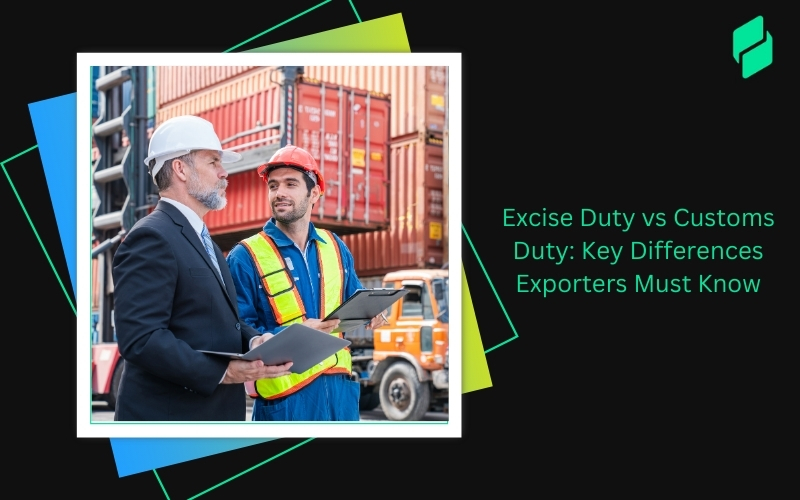Optimize your business: use unlimited savings with Pazago fulfilled now!
Get Started ->As an exporter, you deal with tight schedules, strict buyer expectations, and a constant stream of paperwork. When a shipment is delayed or received incorrectly, it’s more than a small mistake; it affects your relationships and your income. For small and medium businesses, the impact can feel even heavier because resources are limited.
Research shows that companies using Advanced Shipping Notices (ASNs) cut receiving costs by up to 40%. For exporters like you, predictability is not a luxury; it’s a necessity for survival.
In this blog, we’ll explore what an ASN is, the ASN full form, how it works, the main benefits it brings, and practical steps you can take to use it in your own export process.
What Is an Advanced Shipping Notice (ASN)?

The ASN full form is Advanced Shipping Notice. It is an electronic message that informs your buyer about the goods on the way. It usually arrives before the shipment itself, providing the receiver with early details about the items, quantities, packaging, and estimated delivery times.
The most common format used worldwide is known as EDI 856; however, other systems, such as DESADV (DESpatch ADVice), are also widely accepted. An ASN typically includes purchase order numbers, product codes, item descriptions, carton details, pallet counts, shipment tracking, and any special handling instructions.
Understanding what an ASN is provides a solid foundation for grasping how it can benefit your shipping process.
Why ASNs Matter for You?
For an exporter, every shipment involves risk, cost, and uncertainty. An ASN reduces these challenges by providing clarity, accuracy, and stronger coordination.
ASN acts like a digital handshake, confirming what is leaving your facility and what the buyer should expect.
To show how this works in practice, let’s look at the key benefits you gain when sending ASNs to your buyers:
- Improved Supply Chain Visibility: When you send an ASN, your buyer knows exactly what is coming and when, helping them prepare staff and storage space properly.
- Faster Receiving Process: An ASN allows warehouse teams to prepare in advance, making unloading, scanning, and storing faster once your shipment physically arrives.
- Greater Accuracy and Fewer Errors: Your buyer can match received items against ASN details, reducing disputes, miscounts, and unnecessary delays caused by incorrect or missing documentation.
- Better Inventory Planning: Buyers can plan stock more effectively because they know the exact quantity and timing, avoiding costly overstock situations or damaging stockouts.
- Lower Costs and Higher Productivity: Clear early communication reduces manual checks, prevents extra handling, and cuts unnecessary expenses while making everyday operations smoother for everyone involved.
- Stronger Communication with Partners: An ASN opens direct, timely communication between you and your buyer, creating mutual trust and helping resolve issues before they grow serious.
It’s one thing to understand how an ASN works on paper; it’s another to apply it practically. Let’s examine how Indian SMEs like yours can implement ASNs step by step.
What ASN Looks Like in Practice for Indian SMEs?

For many small and medium exporters in India, the idea of ASNs may sound technical, but in practice, it’s straightforward and practical.
To help you understand, let’s break down how an ASN works in everyday exporting scenarios relevant for Indian SMEs like yours:
- Using Common Business Tools: You can generate an ASN directly from software you may already use, such as basic ERP systems, WMS platforms, or EDI connections.
- Coordinating with Indian Customs: Sharing ASN details early helps your customs broker prepare documents, reducing unnecessary delays during clearance and avoiding costly storage charges at ports.
- Communicating with Overseas Buyers: An ASN reassures your international buyer by confirming exact shipment details, helping them schedule their warehouse space and plan inbound transportation more accurately.
- Managing Local Warehouses: When you notify your warehouse team in advance, they can prepare unloading equipment, assign staff, and allocate storage space before the truck arrives.
- Reducing Stress During Peak Seasons: Whether shipping textiles, food products, or handicrafts, having ASNs in place helps you avoid last-minute surprises during high-demand export periods.
- Building Confidence for Growth: Each successful use of ASNs strengthens your processes, giving you greater predictability and making your export journey smoother with every new shipment.
Implementing ASNs may seem like a daunting task, but taking the proper steps can make it a straightforward process.
Best Practices for Getting Started
Adopting ASNs for your exports does not require complicated systems, but it does need precise planning and consistency from the very beginning.
To help you start smoothly, here are practical best practices you can follow when introducing ASNs into your exporting process:
- Automate Where Possible: Use ERP software, WMS platforms, or EDI solutions that automatically generate ASNs, reducing manual entry errors and saving valuable preparation time.
- Maintain Accurate Data: Double-check purchase order numbers, item descriptions, and quantities before sending, as incorrect data can create confusion and unnecessary disputes with your buyer.
- Agree on Formats with Buyers: Align with your buyer on the type of ASN they expect, ensuring all required fields are included and correctly structured.
- Train Your Team: Provide clear training for staff members handling ASNs, so they understand how to prepare, send, and verify the information accurately.
- Review and Improve Regularly: After each shipment, assess whether the ASN process was effective, identify any gaps, and make minor adjustments to strengthen your future exports.
While ASNs are a vital step in improving your shipping process, Pazago’s tools provide additional support, making the entire export process more efficient and transparent.
How Pazago Supports Exporters Like You?

At Pazago, we go beyond simply explaining shipping concepts; we provide tools and services designed to make your exporting journey smoother.
To show how Pazago aligns with your shipping needs, here are the key features that directly support exporters managing complex global trade requirements:
- Automated Documentation and Management: Pazago prepares documents automatically, ensures compliance with regulations, and helps you manage all export paperwork in one secure online location.
- Shipment Tracking: With real-time tracking, you always know the exact location of your shipment, reducing uncertainty and enabling you to update clients promptly without delays.
- Communication Tools: Centralized chat functions keep communication organized, making it easier to coordinate with suppliers, buyers, and internal teams handling daily operations.
- Logistics and Insurance: Pazago combines logistics planning with insurance management, enabling you to manage transportation and risk coverage together through a single, integrated process.
- Integrated Finance: From foreign exchange risk management to payment tracking, Pazago gives you clear visibility and greater control over your shipping-related financial activities.
By combining these features, Pazago makes your shipping process clearer, less stressful, and more predictable, reducing unnecessary costs while strengthening your export operations.
Conclusion
Advanced Shipping Notices (ASNs) help reduce errors, improve communication, and minimize delays by providing buyers with detailed shipment information before arrival. This early communication ensures smoother transactions and strengthens buyer confidence.
By using Pazago, you can automate ASN creation, manage documents, and track shipments in real-time. With Pazago’s tools, your export process becomes more organized, saving time and reducing risks.
If you’re ready to understand the ASN full form better and simplify shipping, book a demo with Pazago and experience the difference today.
FAQs
Q: How early should exporters share an Advance Shipping Notice with their overseas buyers?
A: Exporters should ideally send the Advance Shipping Notice once goods are packed and dispatch-ready, giving buyers enough time to plan resources effectively.
Q: Can Advance Shipping Notices reduce disputes related to customs clearance delays?
A: Yes, because customs brokers receive shipment information in advance, they can prepare necessary documentation beforehand and prevent unnecessary storage charges at ports.
Q: Are Advance Shipping Notices useful for small exporters with limited international shipments?
A: Absolutely, because even small exporters gain stronger credibility when buyers receive early shipment information, reinforcing trust and reliability in every transaction.
Q: What risks do exporters face if they skip Advance Shipping Notices?
A: Exporters may experience delayed payments, dissatisfied buyers, and avoidable warehouse costs due to poor preparation on the receiving side.
Q: How does Pazago complement the use of Advance Shipping Notices for exporters?
A: Pazago enhances the process by offering automated documents, real-time tracking, central communication, logistics planning, insurance options, and integrated financial control tools.


.png)








